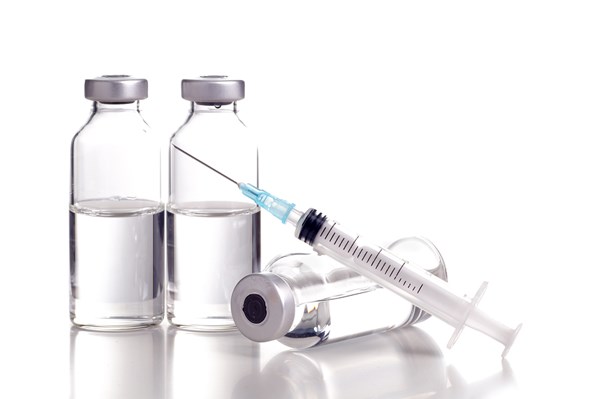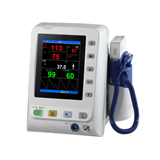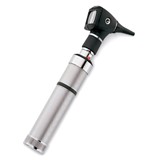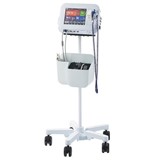Since the introduction of vaccination in Australia (in 1932) and overseas, millions of lives have been saved as deaths for vaccine-preventable diseases have fallen by 99 per cent.
Dr Jones said it was especially vital for parents and guardians to ensure all children are fully vaccinated. Measles, for example, can develop into a very grave infection as news reports this week of a young Melbourne woman suffering from complications caused by the disease shows.
'People have forgotten what it was like to have babies dying from illnesses because we don't see it now. Why? Because immunisation has been the best public health measure ever introduced,' Dr Jones said.
In 2014-2015, Australia had a fully immunised rate of 90.9% of children aged 1, 2 and 5 years of age with an aspirational target of 95% which means 9.1% of children were not fully immunised.
'Your GP is the cornerstone of an effective and timely immunisation program and the most important determinant of complete vaccination is a recommendation by a GP or health practitioner,' Dr Jones said.
At least 70 percent of all childhood immunisations are delivered by GPs and adult immunisation is delivered almost exclusively in general practice.
'Herd immunity', when over 90 percent of the community is vaccinated, is important for protecting those who cannot receive vaccinations including children too young to be vaccinated, those with immune system problems or too ill to receive vaccines.
Dr Jones said vaccinations are not just for children.
'Most adults in Australia are fully vaccinated but as a general rule a tetanus booster every 10-15 years is recommended and an annual flu injection every April. Some 300,000 GP consultations are flu related,' he said.
'It's a tragic fact that influenza causes an estimated 1,500 deaths annually which is similar to the annual number of deaths on our roads.'
Although influenza vaccination provides 50-70% protection against influenza depending on vaccine strains match, there is good evidence of substantial cross-protection when the circulating and vaccine strains don't match.
Pertussis or whooping cough is a highly publicised disease with regular epidemics. As protection declines after immunisation the 18 month pertussis booster has been re-introduced.
'As we strive to protect babies too young for vaccination against pertussis, we have turned our attention to immunising pregnant women, so that protective antibodies are passed from mother to baby before birth,' Dr Jones said.
As well as whooping cough vaccination, pregnant women are advised to have the influenza vaccination during the flu season as it is know that pregnant women are prone to increased complications from influenza infection.
'Vaccinations go through umpteen trials and immunising in Australia is extraordinarily safe as it saves lives with minimal side-effects,' Dr Jones said.
GPs can give parents the details of the childhood immunisation schedule which covers diseases such as Hepatitis B, diphtheria, tetanus, whooping cough, pneumococcal and rotavirus.
'Adults over 65 should also receive the anti-pneumonia vaccine which is a one-off for a particular type of pneumonia,' Dr Jones added.
Later this year Australia will offer Zostavax, a vaccine effective for zoster or shingles, to all adults over 70 years of age. This is in addition to the annual influenza vaccine and pneumococcal pneumonia vaccine. Read the RACGP's guidelines on immunisation.






-160x160-state_article-rel-cat.jpg)

